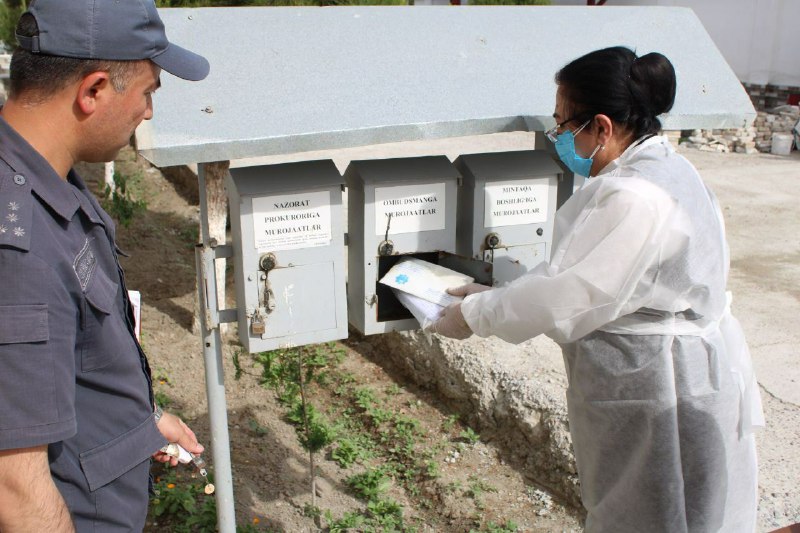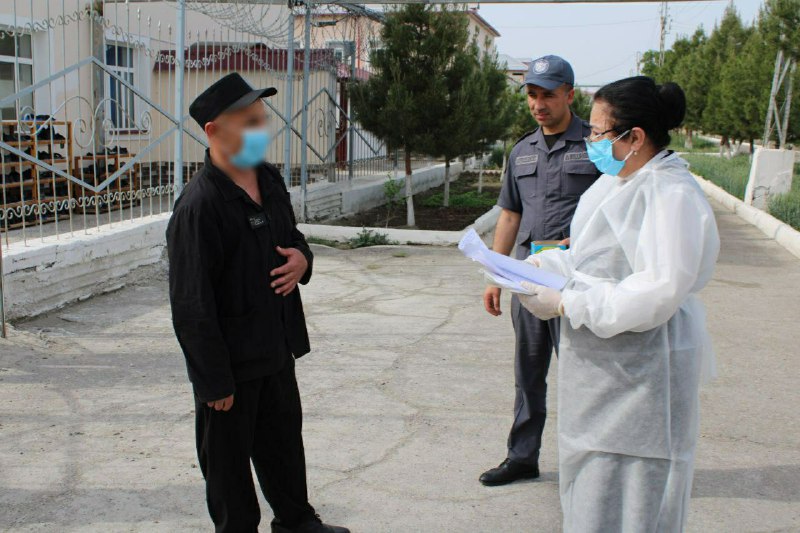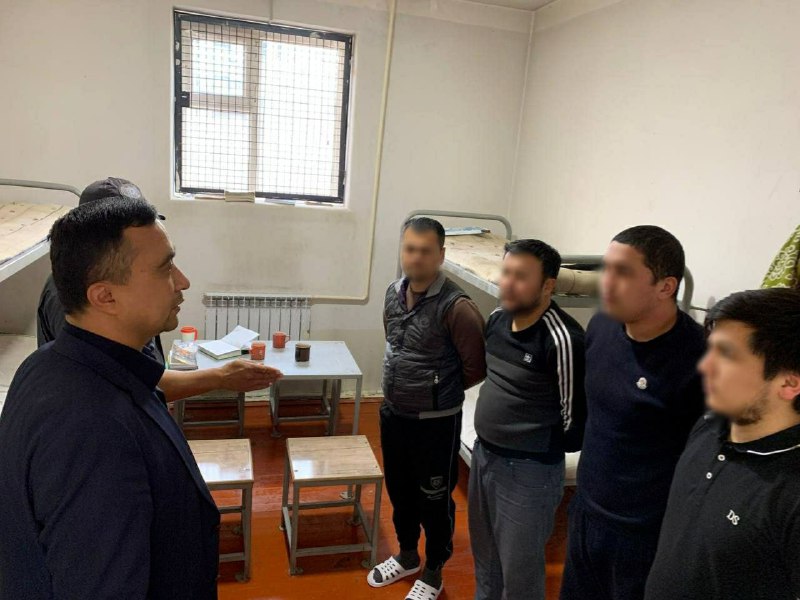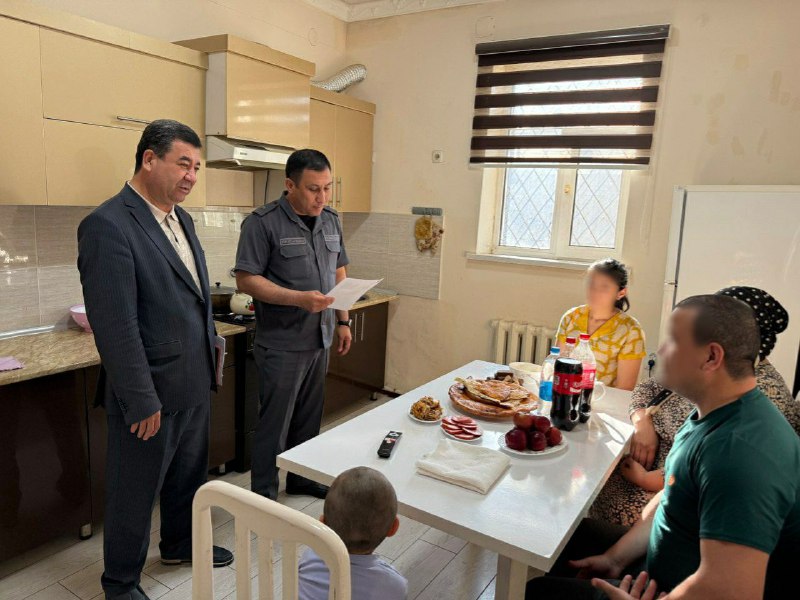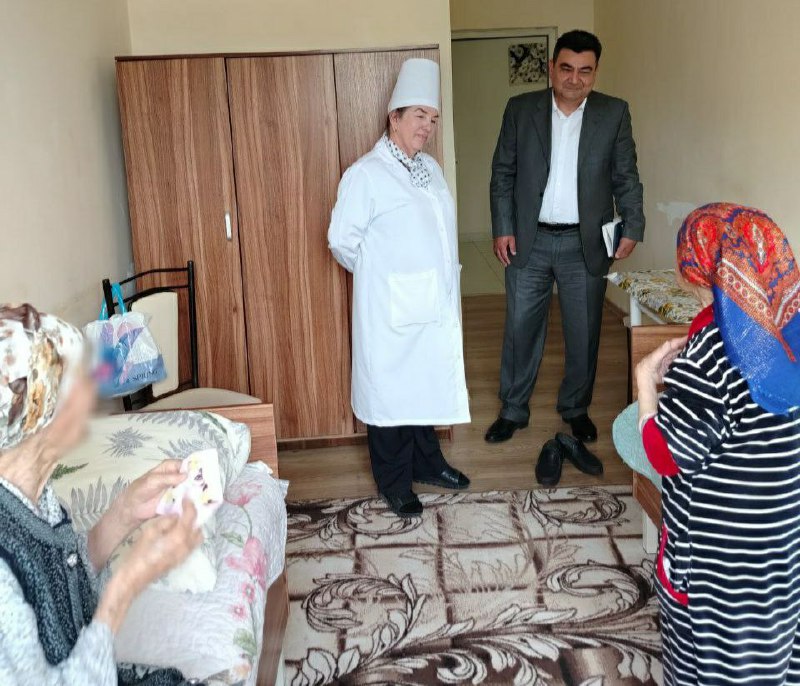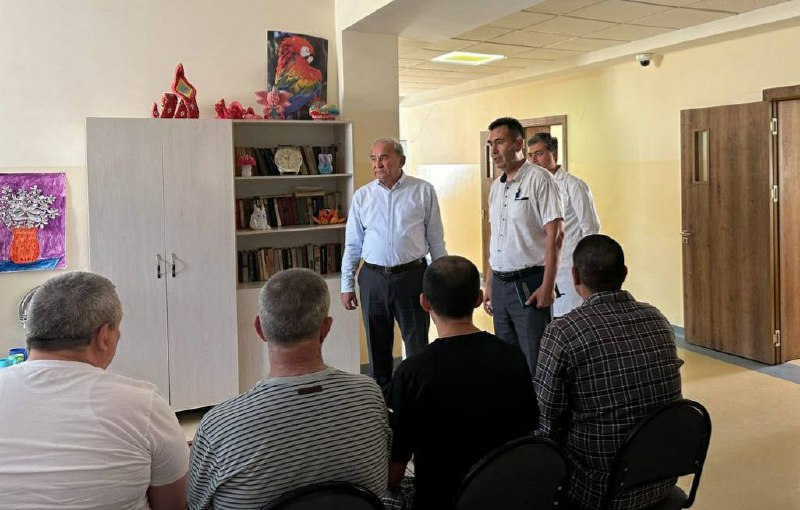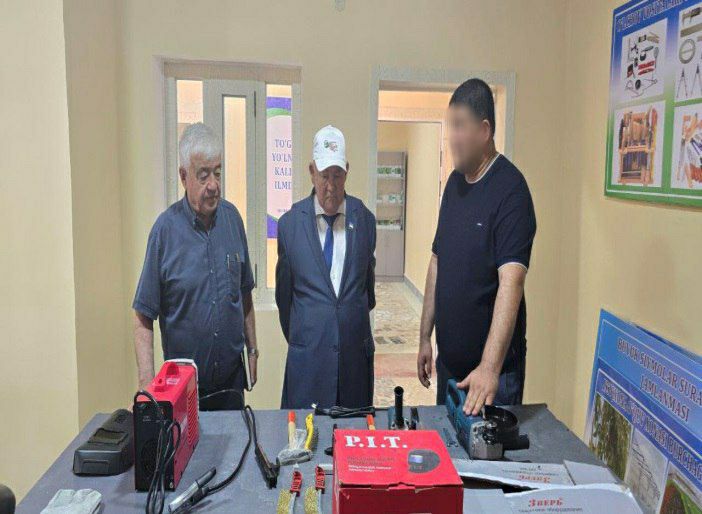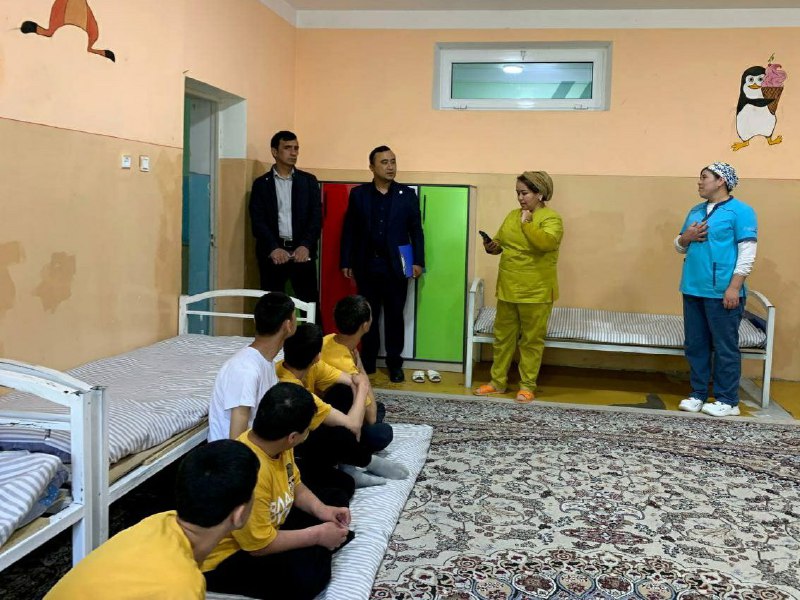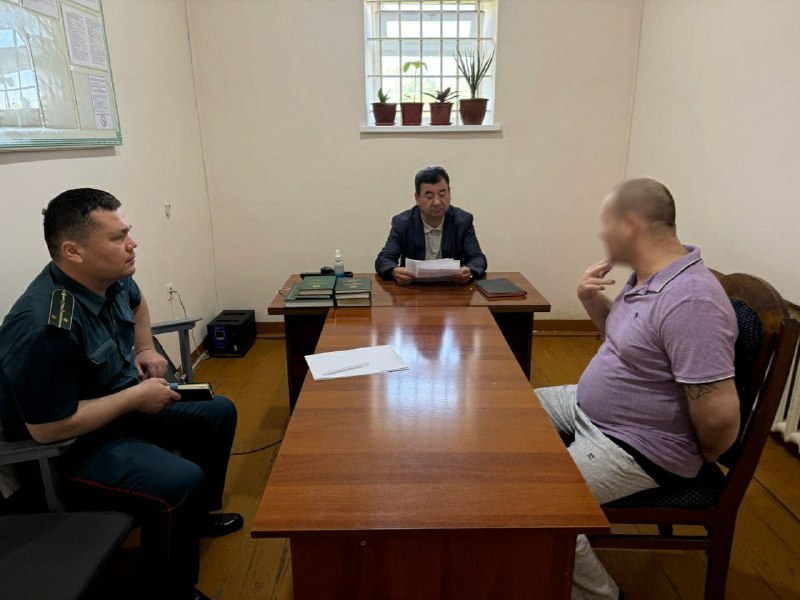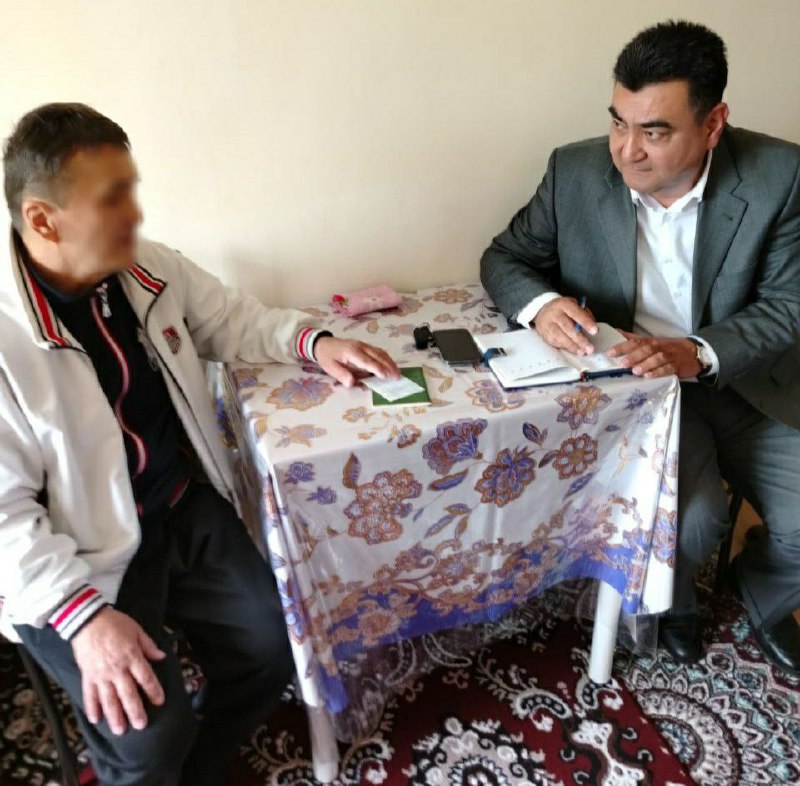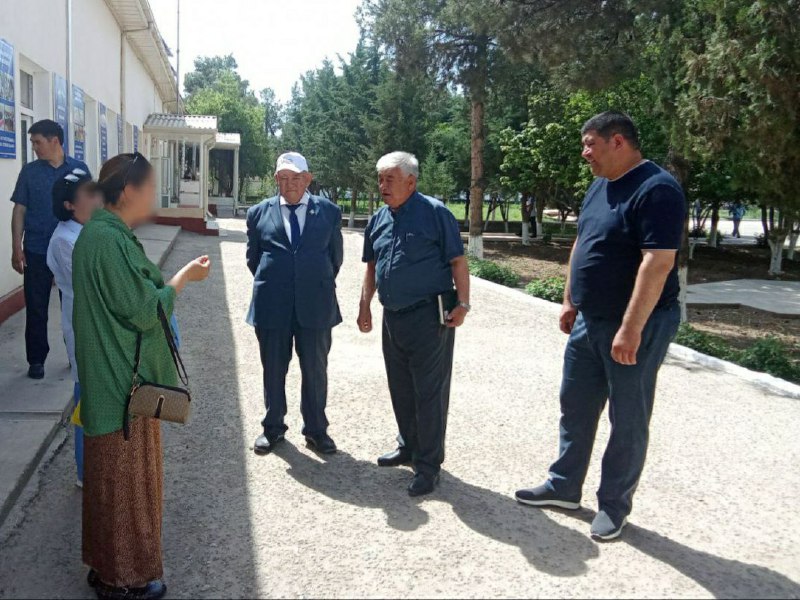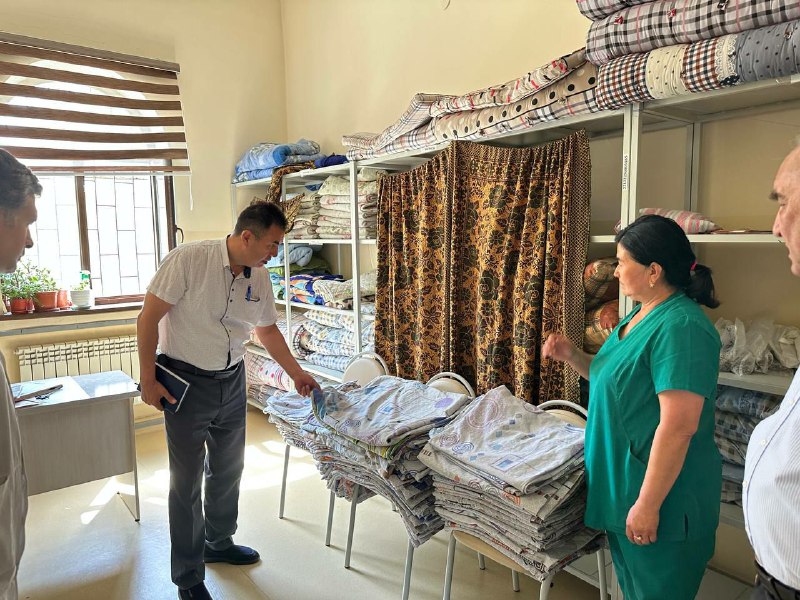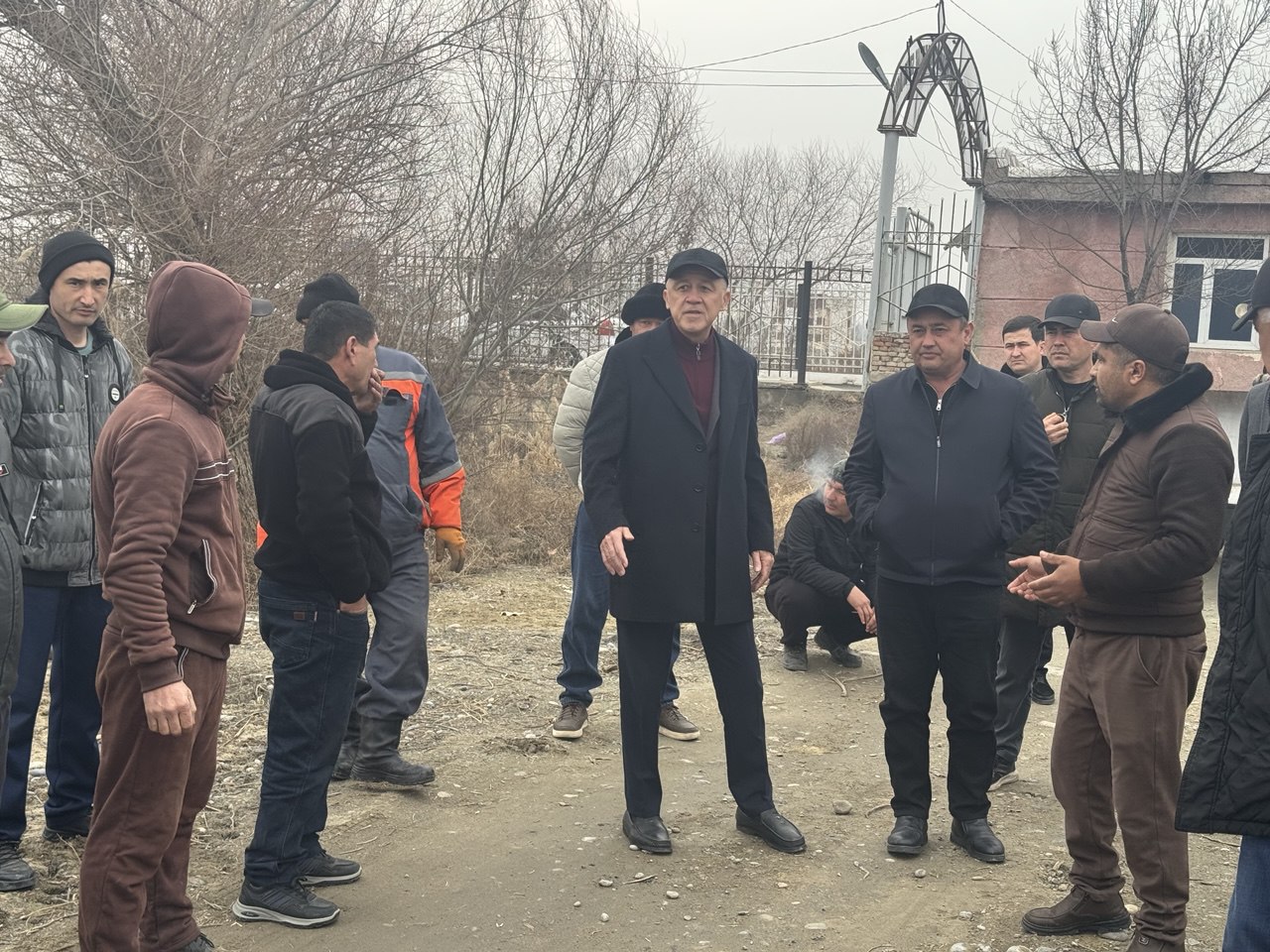Specifically, visits were made to Penal Colonies No. 1 and 20, Pretrial Detention Center No. 4 in Bukhara region, medical aid centers for persons in a state of intoxication in Jondor and Romitan districts and Kogon city; the Social Support Center in Samarkand region; intoxication aid units in Qo‘rg‘ontepa and Paxtaobod districts of Andijan region; Pretrial Detention Center No. 3; the "Muruvvat" Children’s Home for children with disabilities in Qo‘rg‘ontepa; the Temporary Detention Center in the same district; Pretrial Detention Center No. 11 and the regional Temporary Detention Center in Khorezm region; Penal Settlement Colony No. 41 in Sherobod district of Surkhandarya region; and a psychiatric hospital located in Tashkent city.
Particular attention was paid to the conditions of dormitories, bathrooms, canteens, medical and treatment units, food and medicine storage facilities, libraries, sports halls, swimming pools, telephone communication rooms, long- and short-term visitation rooms, inspection rooms, greenhouses, exercise yards, as well as rooms for investigation and attorney meetings. The air ventilation systems and CCTV monitoring installations were also inspected.
During the visits, several shortcomings were identified. For example, in the intoxication detention facility of Qo‘rg‘ontepa district, the sanitary conditions of cells and washrooms were found to be inadequate, with damaged walls in need of repair. CCTV cameras in the facility lacked audio recording capability, and some were non-functional. In Paxtaobod district, the facility had no surveillance cameras, and plastic sheets were used in place of bedding. In the Khorezm regional Temporary Detention Center, the stock of medicines for providing first aid was found to be incomplete.
Additionally, appeals submitted through the “Ombudsman Boxes” were collected, and group and individual interviews were held with detainees and patients capable of communication.
Based on the monitoring results, the Ombudsman will submit recommendations and official responses to the relevant ministries and agencies to address the identified deficiencies.
Press Service of the Commissioner of Oliy Majlis for Human Rights (Ombudsman)













